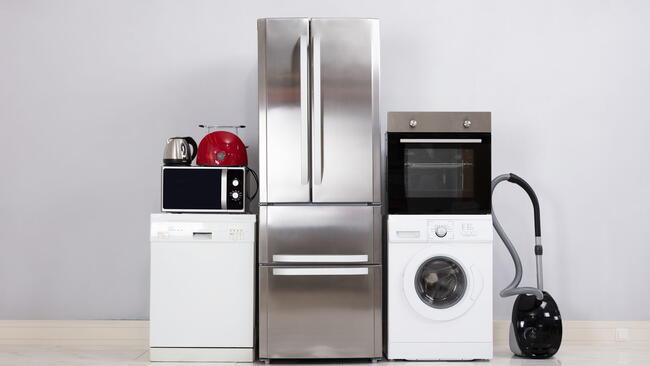Primary Image

Photo Credit
Maria Lin Kim
Easy Ways to Save Money on Groceries
The simplest way to save a bundle is just shop at Aldi's. While some times other stores have special prices for brand items but only for a short time or only if you use a "rewards" card so your info is shred throughout the commercial world. A few items may be cheaper elsewhere but there's no other store close to their totals at checkout.
Let me assure you, I have no connection whatsoever with Aldi's except sense enough to know a good - no- a great thing when I see (save!) it.
Jerry Ison, Talbott TN
Shopping at ethnic stores save me lots of money, and I get to try new things. It's criminal how expensive groceries are these days! Everyone should be able to afford food and a place to live if they are working. Doesn't make America sound great, does it?
try the quick sale tables. fab buys! if possible, do the bakery thrift stores; salvage food stores; and even ethnic stores ! even more fab buys !!
... Apparently, you have not checked out the price of flank steak, or "Flat-Iron Steak"' lately, they charge premium meat prices, anymore, due to it's popularity (it is by far the best , and most flavorful cut of beef, on the cow). Around here 8.00 to $11.00 a pound on average, quite an expensive cut of meat.
Starting with COVID, I still most of the time order my groceries online, looking at choices on the computer, drive to the parking lot, and they bring out the order and put it into the car. Choose the time for pick-up and have an hour window. Eliminates some of the risks mentioned.
Heya. Compare reviews. I always do this when I am at the local supermarket in order to be completely savvy. Good luck. Make out brief summary notes as well to help you. I prefer to make some notes on what I have at home before going to buy food. Look for own brand stuff as far as possible. Or see if you can get it for free. A friend used to let me eat the free fruit and veg which she grew freely at home. You can buy cheap fruit and veg from a farming market. Try it and see what happens as a result.
And I like to use different shops these days. For example instead of going to the supermarket to purchase items I tend to investigate my other options. I know that you can buy things like honey and butter at local farm shops and so on. In the past I have even done so. I only purchase a few different cheap magazines once in a blue moon. There are literally hundreds of cafes that are scattered all over the country. It does make such a difference overall. I budget fairly wisely too.
Meal planning and having a list is very helpful to me. But I save the most when I don’t go into the store at all. I utilize the curb side pickup that is available at most major grocery store chains. I’m saving money because I’m not impulse buying or straying from my list. I save a huge amount of time by not doing the shopping, standing in line or self- checking, as many stores are switching to. My rural grocery store’s “store shoppers” do an excellent job at providing the freshest produce and completing my order.
I strongly suggest buying a half a beef from either a butcher shop (not in grocery store, but a real butcher shop) or buying it direct from a cattle rancher. You get beef that you know is high quality and at greatly reduced price from grocery store. Do not believe that b.s. that you can only keep beef in the freezer for 6 months. That simply isn't true. For one thing, if you get it direct from rancher and butcher shop it is always already double wrapped. You won't get any freezer burn or food waste. It keeps at least 2 years.









Comments